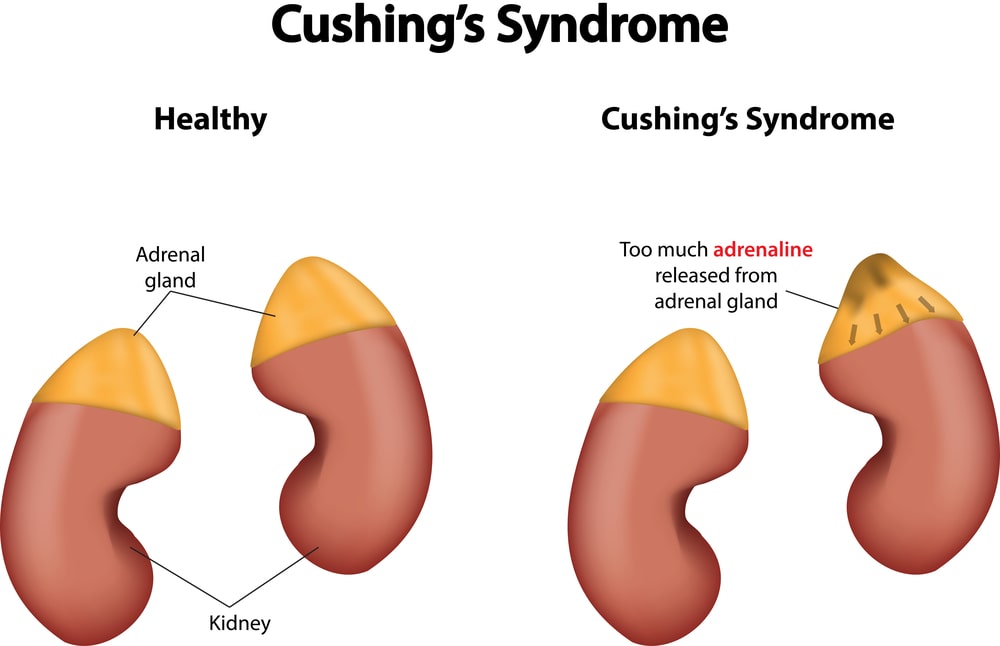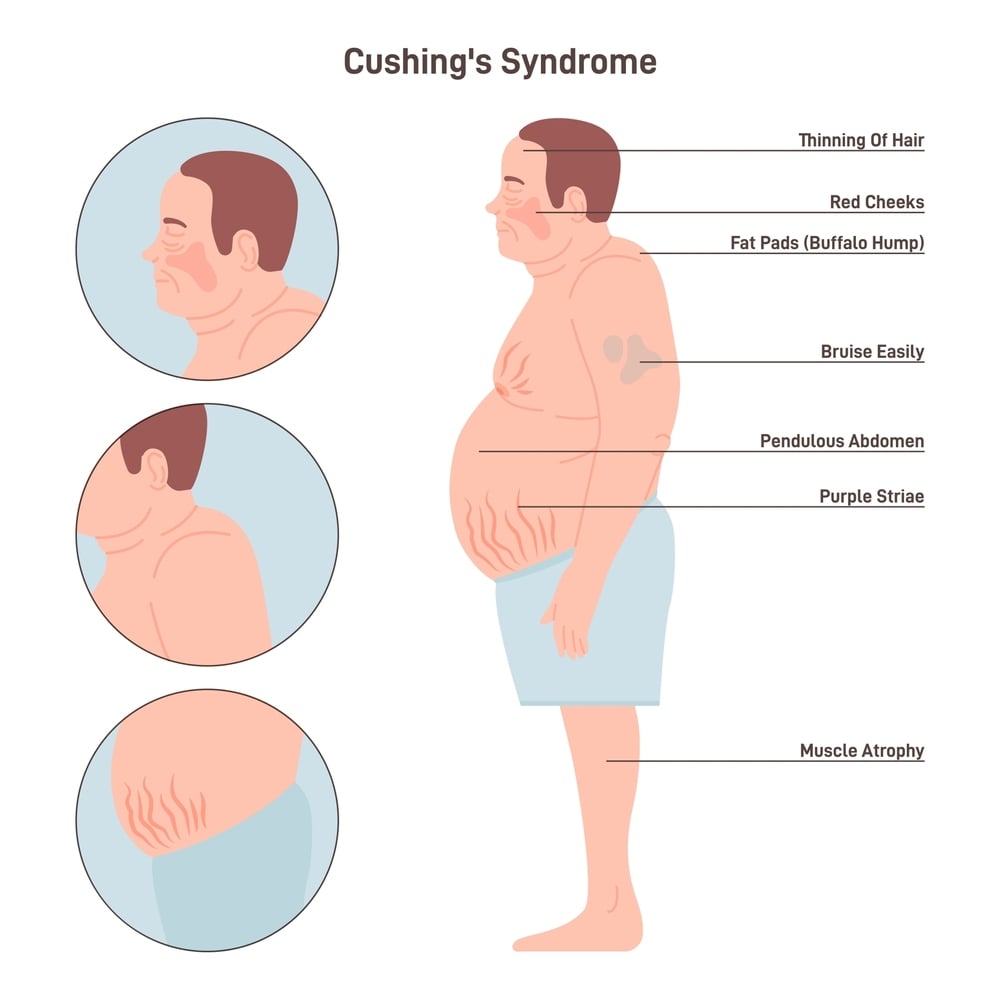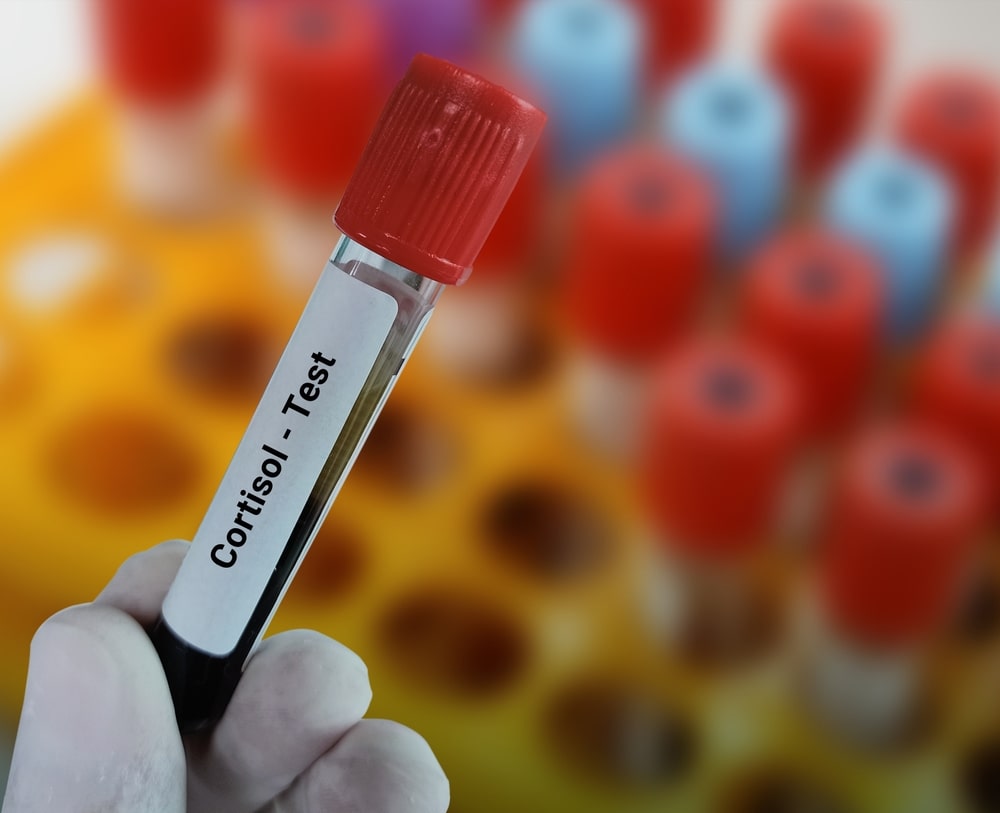Is Cushing Syndrome Fatal?
Cushing’s syndrome, a rare endocrine disorder characterized by an excess of the hormone cortisol in the body, can be a cause for concern. While it often presents a range of debilitating symptoms, the question on many minds is: Is Cushing syndrome fatal? In this blog, we’ll explore some unanswered myths and facts associated with Is Cushing syndrome fatal. and how it can be managed.
What is Cushing’s Syndrome?

To begin with, Is Cushing Syndrome fatal? We need to understand what Cushing Syndrome is. Cushing’s syndrome is primarily caused by overexposure to cortisol, a hormone produced by the adrenal glands. It’s also known as hypercortisolism. Cortisol comes from your adrenal glands, which sit on top of your kidneys.
It helps your body:
- Maintain blood pressure
- Regulate blood sugar
- Lower inflammation
- Turn the food you eat into energy
But when you have too much cortisol, it can throw off your body’s other systems. Although it could take some time for your symptoms to go away, the majority of Cushing’s disease cases can be treated. Compared to men, women are more likely to have the condition. The most common age range for it is between age 25 to 40.
What causes Cushing’s Syndrome?

So when people hunt Is Cushing syndrome fatal? Although Cushing’s syndrome itself is not typically life-threatening, its potential to lead to serious health issues highlights the need for timely intervention and vigilant care.
Prolonged exposure to excessive body levels of the hormone cortisol is the main cause of Cushing’s syndrome. There are a number of underlying explanations for this excess cortisol, which can generally be divided into three categories:
Internal or Endogenous causes:
- Tumors within the adrenal glands are the most frequent endogenous cause of Cushing’s syndrome.
- A benign tumor(Adenoma) in the pituitary gland can occasionally result in Cushing’s disease by secreting an excessive amount of adrenocorticotropic hormone(ACTH).
- Tumors or diseases that do not originate from the pituitary or adrenal glands but instead create ACTH(Ectopic ACTH-producing tumors) can also cause Cushing’s syndrome.
External or Exogenous causes:
- People who use high dosages of corticosteroid drugs for an extended period of time may develop this type of Cushing’s syndrome. Overuse of these drugs can inhibit cortisol synthesis, resulting in Cushing’s syndrome symptoms.
- A person may be predisposed to developing Cushing’s syndrome if they have a rare genetic illness such as familial Cushing’s Syndrome or Primary Pigmented Nodular Adrenocortical Disease(PPNAD).
Symptoms of Cushing Syndrome:

After understanding what is crushing syndrome and how it is caused. The next very obvious thought in mind is Is Cushing syndrome fatal? How can we look for it?
Some common symptoms of Cushing Syndrome include:
- A plump, red face
- Gaining weight, particularly around the upper body part
- Thinning, easily bruised skin
- Extreme fatigue
- Weak muscles and bones
- Elevated blood sugar and pressure
- Urinary stones
- Sleeping issues
- Overgrowth of hair on your face and body
- Low desire for sex and issues getting manhood
- Reduction in fertility
How to diagnose Cushing Syndrome?

So, by now as we all know a brief idea about “Is Cushing’s syndrome fatal? Recognizing that Cushing’s syndrome does not directly cause fatality, it is essential to address it promptly to minimize the potential for life-endangering conditions.”Cushing’s syndrome diagnosis usually entails a number of medical exams and testing. The diagnostic procedure typically entails the following steps:
- Clinical Evaluation: The patient’s medical history is reviewed and their symptoms are assessed as part of clinical evaluation. Cushing’s syndrome frequently manifests as weight gain, muscle weakness, skin abnormalities, elevated blood pressure, and mood swings.
- Physical Examination: To find physical indicators of Cushing’s syndrome, such as stretch marks, thin skin, and easy bruising, a physical examination may be conducted.
- Lab Examinations: Initial cortisol level testing may involve blood and urine testing. Cortisol normally has a diurnal pattern, peaking in the morning and troughing out in the evening.
- Dexamethasone is a synthetic glucocorticoid drug. The overnight suppression test involves taking it in the evening and analyzing cortisol levels the next morning. Elevations of cortisol persist in Cushing’s syndrome.
- Potential tumors in the pituitary or adrenal glands may be found via radiological imaging tests, such as CT or MRI scans.
- Adrenocorticotropic hormone(ACTH) levels can be measured which can assist in distinguishing Cushing’s syndrome from other possible causes including Cushing’s illness (pituitary source).
How to treat Cushing’s Syndrome?

To understand more, is Cushing syndrome fatal? While Cushing’s syndrome is not an immediate threat to life, the risks it poses necessitate early diagnosis and comprehensive treatment.
- Your doctor will first try to determine the cause of your excessive cortisol levels. How to treat Cushing syndrome disease will follow from an underlying cause that needs to be addressed for proper tailored treatment.
- Your doctor will determine if you have an excess of cortisol as a result of taking steroid medication while still controlling your asthma, arthritis, or other ailment they might reduce your dosages.
- Surgery to remove the tumor may be required if the source is an adrenal gland tumor(Primary Hyperaldosteronism) or a pituitary gland tumor(Cushing’s disease).
- Medication may occasionally be used to reduce cortisol levels before surgery or to manage the symptoms of Cushing’s syndrome. Methyrapone, Mifepristone, and Ketoconazole are a few examples of such medications.
- If surgery is not possible to eradicate the tumor, you may also get radiation therapy.
- You could require hormone replacement therapy if the tumor or its treatment has an impact on other hormones generated by the pituitary or adrenal glands.
- A key component of living with Cushing’s disease is eating healthfully. A nutritious diet helps avoid certain symptoms and lessen others. By consuming meals high in calcium and vitamin D, you can protect your bones.
- Consulting a specialist and getting recommendations for hot baths, massages, and mild workouts like water aerobics can all help ease aches and pains.
Is Cushing Syndrome Fatal?

Well to answer in brief, Is Cushing Syndrome Fatal? In most cases, Cushing’s syndrome is not thought to be fatal when properly diagnosed and treated.
However, if neglected or mismanaged, it can result in a number of grave health issues and have a substantial negative influence on a person’s quality of life.
These issues could include:
- Cardiovascular Problems: Extended exposure to high cortisol levels raises the risk of heart disease and stroke and can cause hypertension, or elevated blood pressure.
- Diabetes: Insulin resistance and the development of diabetes are two outcomes of Cushing’s syndrome that, if left unchecked, can cause a number of health problems.
- Infections: People with Cushing’s syndrome may be more susceptible to infections due to compromised immune systems.
- Osteoporosis: The decrease of bone mass can lead to physical issues, fractures, and excruciating pain.
- Psychological Impact: Mood changes, such as depression and anxiety, can affect a person’s mental and emotional well-being.
When people hunt to seek is Cushing Syndrome fatal the simple precise answer is Cushing Syndrome in and of itself is not usually fatal, but its consequences can be, especially if left untreated.
The good news is that many people with Cushing’s syndrome can enjoy better health, reduced symptoms, and a high quality of life with early diagnosis, effective therapy, and continuous medical care.
It’s critical to collaborate closely with healthcare experts if you or someone you know has been diagnosed with Cushing’s syndrome or is suspected of having it in order to ensure appropriate management and treatment. To reduce the syndrome’s possible hazards and effects, early diagnosis and management are essential.
Conclusion:
Is Cushing Syndrome Fatal? While Cushing’s syndrome itself is not typically considered directly fatal, it can result in serious health complications that, if left unmanaged, may pose a risk to a person’s life. Early diagnosis and appropriate treatment are crucial in reducing the potential for fatality associated with this condition.
FAQs:
What hormone is responsible for Cushing Syndrome?
The main cause of Cushing’s syndrome is the body’s overproduction of the hormone cortisol. The adrenal glands, which sit atop the kidneys, create the hormone cortisol. It is essential for controlling a number of bodily processes, such as immunity, metabolism, and stress reactions.
Can Cushing Syndrome be cured?
So, when the people’s query arises is Cushing Syndrome fatal, or can it be cured? The simple precise answer is that Cushing syndrome is not fatal and can be frequently successfully treated and controlled, it may not always be fully cured, particularly if it is brought on by specific underlying illnesses or circumstances.
How long can a dog live with Cushing’s disease?
Cushing’s disease in dogs can have varying life expectancies and quality of life based on a number of factors, such as the underlying cause of the ailment, the general health of the dog, the severity of the disease, and the treatment given. With the right veterinary care, Cushing’s disease in dogs can be controlled, and many of them can live happy, healthy lives.
Is Cushing’s disease hereditary?
Usually, Cushing’s disease is not inherited in the same way that genetic disorders are passed down through generations. An adenoma, or benign tumor, in the pituitary gland, is the cause of Cushing’s disease which grows on its own; it is not hereditary.
But there might be some hereditary elements or Pituitary tumors that can lead to Cushing’s disease, and some rare genetic disorders including the Carney complex and Multiple Endocrine Neoplasia Type 1(MEN1) can make this more likely.
How rare is Cushing’s disease?
A particular type of Cushing’s Syndrome called Cushing’s disease is regarded as quite uncommon. It is brought on by a benign tumor(Adenoma) of the pituitary gland, which causes an excess of the cortisol hormone.
According to estimates, there are 10 to 15 occurrences of Cushing’s disease per million individuals annually, making it a relatively uncommon disorder.

